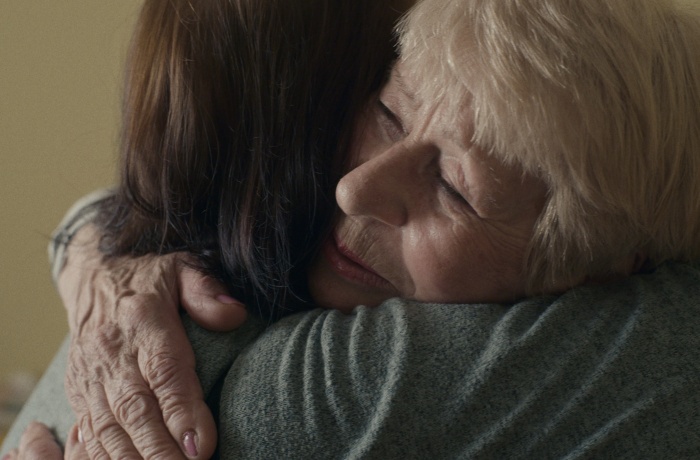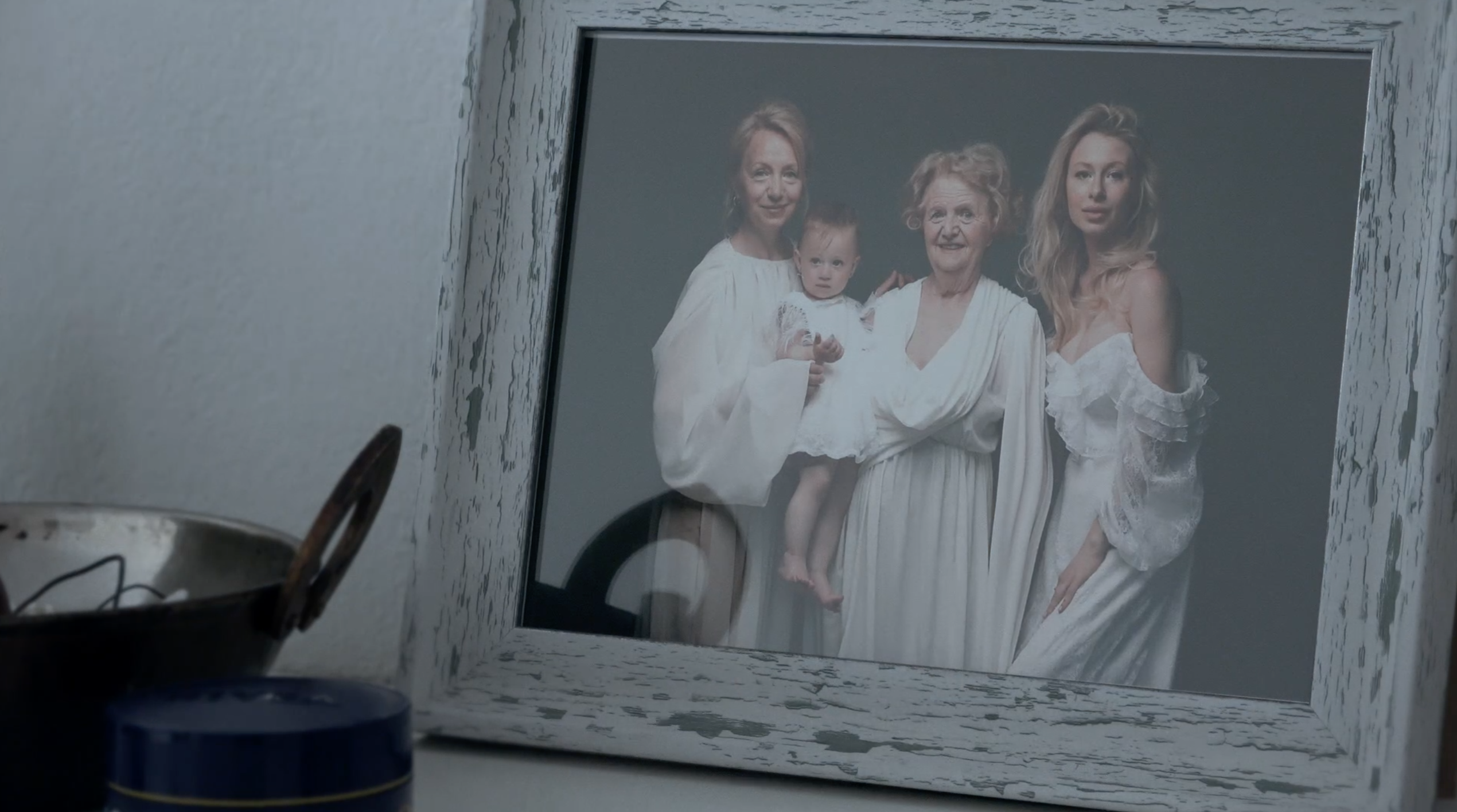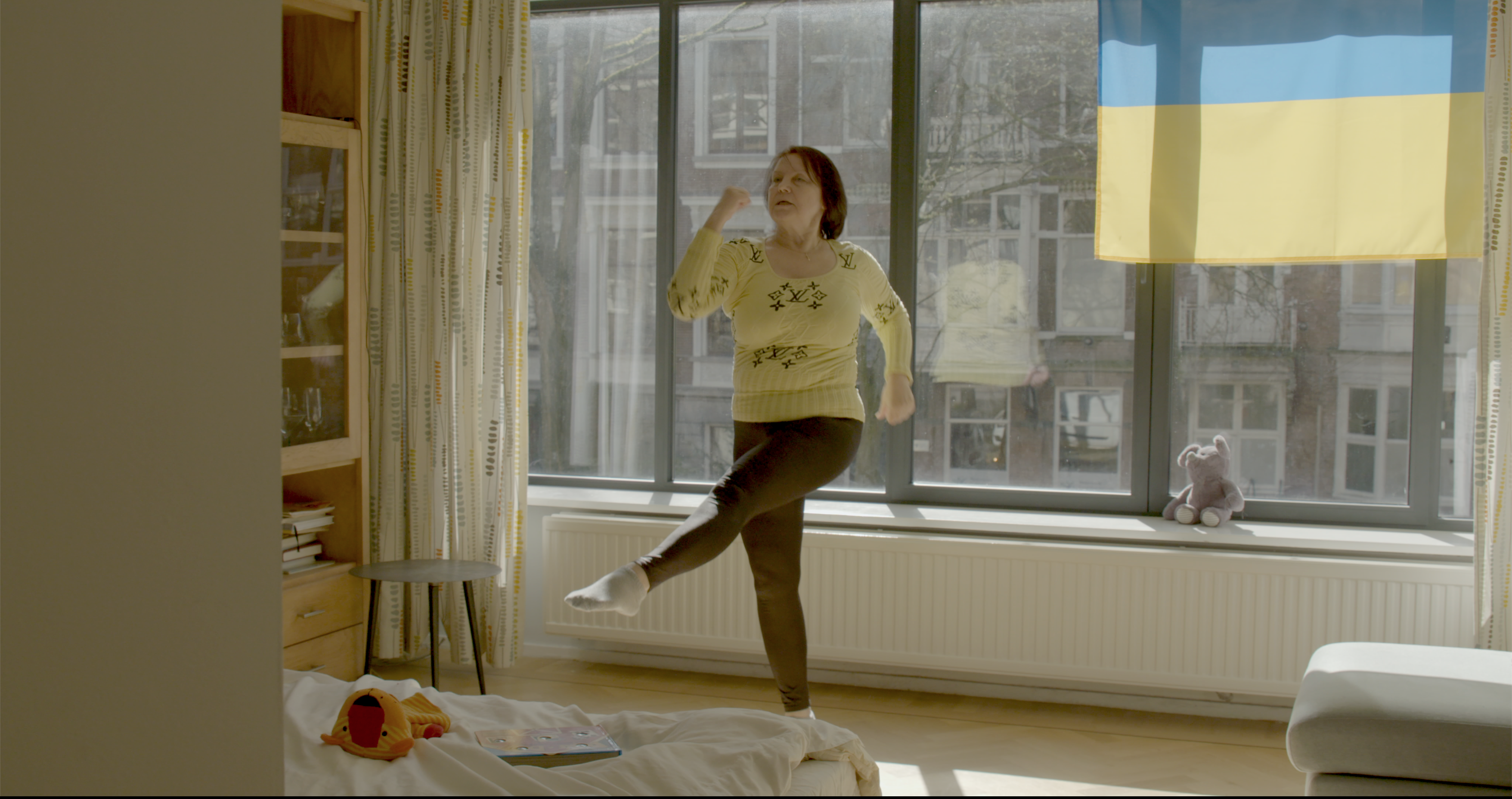
When the first shocking weeks of the war had passed, we began to get used to the adrenaline that kept flowing through our veins. I recall how the war could be heard very clearly in Kyiv in the last weeks of March 2022. That was when the Armed Forces of Ukraine were pushing the Russians out of the Kyiv region, the horizon was filled with smoke, and the rhythmic booming hardly ever ceased. And then the invaders retreated and silence reigned for a few days, which was more anxiety-inducing than the booming. As if the silence could conceal an even bigger threat, a preparation for a crushing strike. But when I shared these weird feelings with others, only the people who were near me understood me. Back then I realised for the first time how different the range of emotions was now for every Ukrainian, according to their new, frightening experiences. How do you communicate your specific state of mind so that others who have not experienced it could also feel it? And why would you communicate it?
The Ukrainian national competition of Docudays UA demonstrates that range this year. It also answers the question ‘why’ very clearly. The differences in our experiences have led to fissions in society; each side has developed generalising narratives; the lack of understanding has deepened, and accusations have started to be thrown around. All that only due to the failure to feel the experiences of others, due to the impossibility of getting up close to another person’s life. What are the feelings of those who have stayed, those who have left, those who have been forced to build a new life, and those who just miss their old lives? We all only know one side, only our own experience. Documentaries are capable of bringing us closer to understanding others.
In Everything Needs to Live, Anna, a celebrity body builder from Mykolayiv, stays at home during the invasion to help abandoned animals traumatised by the war. She is an example of someone who has taken a strong stance, a firm decision. Ukrainians like her join the army to fight on the frontline; they have been volunteering from the very first day, they work in the field of critical infrastructure, services and culture — despite blackouts, missile strikes and personal tragedies.
The directors Tetiana Dorodnitsyna and Andrii Lytvynenko had different things in mind for this film; they focused on Anna’s coaching experience in training paralympic athletes. This poignant plotline is also present, but the war has added a new, important layer, and it is now difficult to imagine what the film would be like without it. Thanks to the intimate portrait of the protagonist and the empathy she evokes, we can deeply feel the pain of every living being that have been wounded by the war on the territories. This is a case of a portrait film which works as a transmitter of other people’s experiences without pathos or pity.
A still from the film A Bit of a Stranger
Meanwhile, the protagonists of A Bit of a Stranger by Svitlana Lishchynska — herself, her mother and her daughter — are in a state of anxious inaction for now. Their home is in Mariupol, they have been uprooted, so their main task right now is to recover their identities and unravel the bundle of personal problems which are always highlighted by such powerful phenomena as war. So the choice made by the protagonist (and the film’s author) a long time ago takes centre stage: in the 1990s, she dared to move to Kyiv and work on her career, leaving her child to be brought up by her mother in Mariupol.
How do you not feel guilty for this when your now-adult daughter keeps bringing it up? During the film, we see the psychological portrait of Sasha, the daughter, after her evacuation to London: life is very difficult for her. The impossibility of returning home, her unhealthy love for the Russian language and music — the remnants of the identity of a ‘post-Soviet’ young person, which has been shattered by the war. Who should she be now, if it is impossible to be a local in the UK, and she has never felt like a Ukrainian?
The grandmother who has brought the girl up, by a lucky chance, comes to Kyiv from Mariupol a week before the invasion (I keep thinking: if the protagonist had never moved to Kyiv, her whole family may have died during this war). We learn about her family history, full of horrors of the past century, and revealed in a few family heirlooms and photographs. It seems like the film finally helps Svitlana start a dialogue with her mother, but it is more about the mother than about herself. The figure of Svitlana, the filmmaker who is at the centre of the story, seems to be invisible. We do not understand what she has been doing this whole time: why did she end up in Lviv in the first weeks of the great war, between Kyiv, where the grandmother stayed in her apartment, and London, where her daughter headed? Even though Svitlana seems to ask questions that undermine the identity she inherited from the Soviet era, as a viewer you feel like she is hiding her true self from us — for instance, in an atmospheric scene which makes us ask: Does the director herself need this scene? Or is it just there to illustrate ‘the signs of the time’?
In Fragments of Ice, the author Maria Stoianova explores the recent past which has become very relevant today. She owns a true treasure: a VHS archive of the 1980s and 1990s, created by her father. It features all the foreign trips by the Ballet on Ice, of which he was a member, as well as kindergarten performances by little Masha, the presents her father brought from overseas, her first baby teeth which her mom extracted with a thread.
The director combs through the precious archives with reverence, quotes her parents, who seem to be watching together with her, and deepens her own and our understanding of the concepts of the ‘iron curtain’ and the homo sovieticus. Her father only turned the camera on to capture her daughter growing up, because he believed that there was nothing interesting in life inside the USSR. Her mother doesn’t remember a single one of his tours in the Soviet Union. But the horrible reality of the time can still be seen through the mundane details: the censorship, the lack of human rights and freedoms. I must admit that I was impatiently waiting for the author to reveal all of this past in the present. The destroyed Palace of Sports in Severodonetsk and the dedication to the editor Viktor Onysko, who was killed in action at the frontline, act on us like ice water. But in addition, I would really like to see Maria’s parents today, to simply sit with her in that kitchen that had no furniture even back in the 1990s. Or at least know how they are doing now, where they are.
Elevation by Maksym Rudenko is a story about a Buddhist from Zakarpattia. It was filmed before the beginning of the invasion, but as I watched it, I was adding images of the present in my mind: the same skiing track up in Verkhovyna, the lack of air raid sirens in the mountains where the diligent coach is gathering a new group to teach them ski jumping. He is blessed to continue being useful in his own place, to dedicate himself to the work which he loves, and avoid the experience of intense war.
However the film shows a classic problem for a documentary filmmaker: how do you film an interesting story of a person without interviews, and how do you build a plot that is only based on the protagonist’s daily life without delving too deep into it, even if you examine it for a long time?
A still from the film Nice Ladies
The most memorable scene from the national programme is from Mariia Ponomarova’s Nice Ladies. At first the film describes a classic success story: a team of older cheerleaders living and advancing in Kharkiv. They train persistently, participate in championships and talent shows. Unsurprisingly, the war enters the film. Just as in Everything Needs to Live, it is shown exclusively through the protagonists. Unfortunately, the film crew is unable to continue following the lives of everyone who has remained in Kharkiv. So we stay with Svitlana, who leaves with her family for the Netherlands, where the filmmaker hosts them in her home.
A completely different film begins, another emigrant story. But Svitlana is active; she keeps training, she often attends Ukrainian demonstrations and keeps in touch with her friends in Kharkiv. Eventually her team goes to participate in a contest. Svitlana is no longer called onto the stage because she has missed too many training sessions. The director manages to capture this pain and despair, the moment when a chasm opens between the different experiences — a conversation between the team members, those who have stayed and those who have left. At that moment, I felt that first and foremost the conflict resonates with the filmmaker’s experience, and this autobiographical aspect is the most sincere feature of documentary filmmaking: being able to speak about the most painful things and to show it through your protagonist.
It is very important to preserve our experiences today. And every experience is worth being captured and shared, so that a multi-dimensional picture of the war can be created, so that all of its facets can be remembered. Maybe it works imperfectly today; maybe we lack distance to reflect on the events more properly. But every author’s statement will become a patch in a future quilt, in the grand narrative of this war. And it is equally important to work on opening your own heart, to be able to feel others, and to become closer to understanding them.